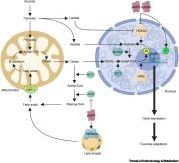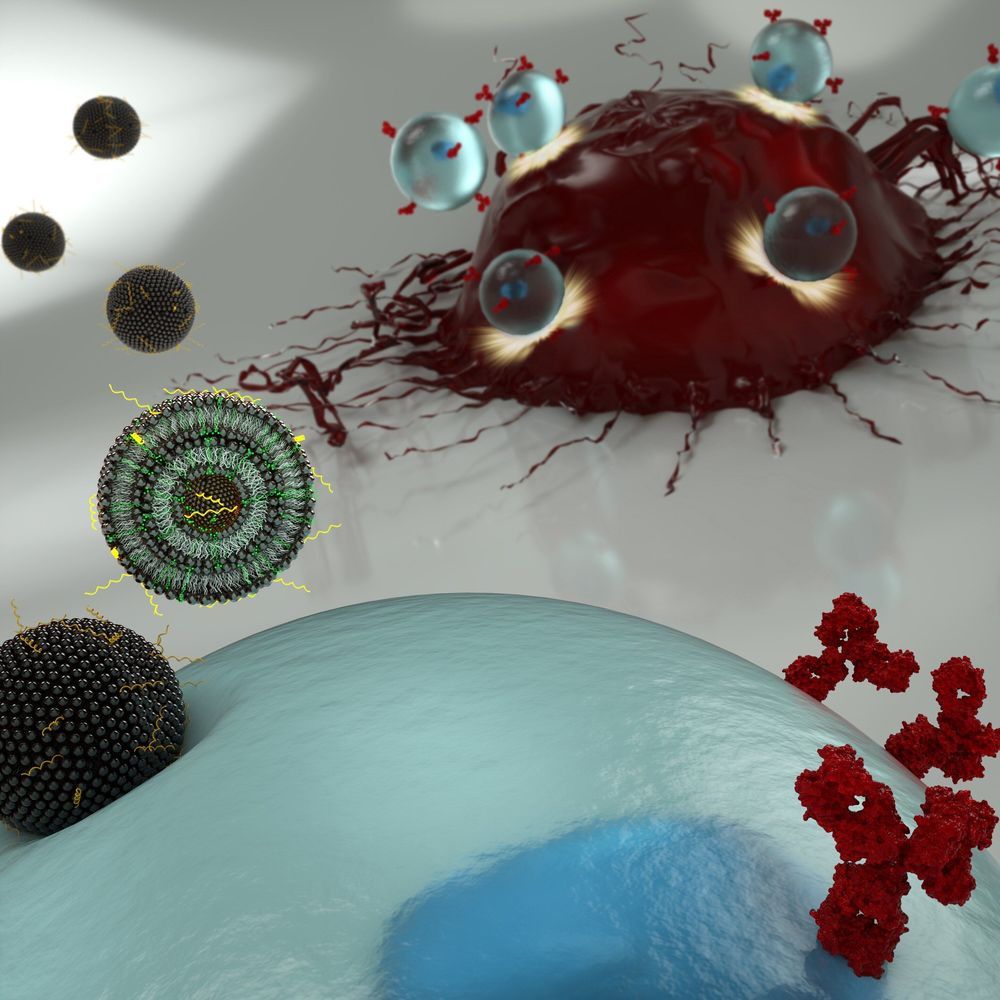But genetic data tells a very different story.



Due to the groundbreaking work in superlongevity by Dr David Sinclair and Yuancheng Ryan Lu on the Information Theory of Aging and how epigenetic therapy can be used to reverse aging, I suddenly have a compelling interest in epigenetics. Here is a recent research article that I’d recommend on.
Epigenetics can be defined as ‘the structural adaptation of chromosomal regions so as to register, signal, or perpetuate altered activity states.’ Increased transcription of key regulatory, metabolic, and myogenic genes is an early response to exercise and is important in mediating subsequent adaptations in skeletal muscle. DNA hypomethylation and histone hyperacetylation are emerging as important crucial events for increased transcription. The complex interactions between multiple epigenetic modifications and their regulation by metabolic changes and signaling events during exercise, with implications for enhanced understanding of the acute and chronic adaptations to exercise, are questions for further investigation.
Evolutionary Medicine — Linking human pathology with our past, present, and future evolutionary trajectories — ideaXme (http://radioideaxme.com/) welcomes Prof. Dr. Frank Rühli, Director of the Institute of Evolutionary Medicine, University of Zurich — #Ideaxme #EvolutionaryMedicine #Evolution #Microevolution #Paleopathology #BiologicalAnthropology #ComparativeAnatomy #Mummies #Mummy #Hypercholesterinemia #Diabetes #DrugAddiction #Health #Wellness #Regeneration #Longevity #Aging #IraPastor #Bioquark #Regenerage
Ira Pastor, ideaXme exponential health ambassador, interviews Professor Dr. Frank Rühli, Director of the Institute of Evolutionary Medicine and on the Medical Faculty of University of Zurich, and Founding Director, Chair, Full Professor of Evolutionary Medicine.
Ira Pastor Comments
Famous prominent Russian-American geneticist and evolutionary biologist, Theodosius Dobzhansky, stated in a 1973 essay that Nothing in biology makes sense except in the light of evolution.”
When one applies this principle to medical research, it suggests that if you study only the proximal causes of health and disease (pathophysiology), you get a limited picture, and such dynamics could be better understood within an evolutionary framework.

Circa 2017 Bats harbor a large diversity of coronaviruses (CoVs), several of which are related to zoonotic pathogens that cause severe disease in humans. Our screening of bat samples collected in Kenya from 2007 to 2010 not only detected RNA from several novel CoVs but, more significantly, identified sequences that were closely related to human CoVs NL63 and 229E, suggesting that these two human viruses originate from bats. We also demonstrated that human CoV NL63 is a recombinant between NL63-like viruses circulating in Triaenops bats and 229E-like viruses circulating in Hipposideros bats, with the breakpoint located near 5′ and 3′ ends of the spike (S) protein gene. In addition, two further interspecies recombination events involving the S gene were identified, suggesting that this region may represent a recombination “hot spot” in CoV genomes. Finally, using a combination of phylogenetic and distance-based approaches, we showed that the genetic diversity of bat CoVs is primarily structured by host species and subsequently by geographic distances.
bMarie Bashir Institute for Infectious Diseases and Biosecurity, Charles Perkins Centre, School of Life and Environmental Sciences and Sydney Medical School, The University of Sydney, Sydney, Australia.
Find articles by Mang Shi
aDivision of Viral Diseases, Centers for Disease Control and Prevention, Atlanta, Georgia, USA.

If you are interested in superlongevity, then I have something that you must read. I have previously recommended a book by Dr. David Sinclair called Lifespan. Here I am recommending a research paper that discusses one of the critical experiments in epigenetic age reversal. Normally I would read a paper first before recommending it. However, I think this is a blockbuster, and it’s over 50 pages, so I can’t wait till my slow eyes finish before passing this on. Here is an excerpt:
Age reversal!
The primary research scientist is Yuancheng Lu.
Here’s a link to the research paper:
Ageing is a degenerative process leading to tissue dysfunction and death. A proposed cause of ageing is the accumulation of epigenetic noise, which disrupts youthful gene expression patterns that are required for cells to function optimally and recover from damage1 – 3. Changes to DNA methylation patterns over time form the basis of an ‘ageing clock’4, 5, but whether old individuals retain information to reset the clock and, if so, whether this would improve tissue function is not known. Of all the tissues in the body, the central nervous system (CNS) is one of the first to lose regenerative capacity6, 7. Using the eye as a model tissue, we show that expression of Oct4, Sox2, and Klf4 genes (OSK) in mice resets youthful gene expression patterns and the DNA methylation age of retinal ganglion cells, promotes axon regeneration after optic nerve crush injury, and restores vision in a mouse model of glaucoma and in normal old mice. This process, which we call recovery of information via epigenetic reprogramming or REVIVER, requires the DNA demethylases Tet1 and Tet2, indicating that DNA methylation patterns don’t just indicate age, they participate in ageing. Thus, old tissues retain a faithful record of youthful epigenetic information that can be accessed for functional age reversal.
Surprising findings could springboard the development of new anticancer drugs, or potentially even directly repurpose existing drugs for cancer therapy.
Drugs that are currently used to treat a wide range of conditions such as diabetes, inflammation, alcoholism, and even canine arthritis, can also kill laboratory-grown cancer cells, according to the results of a study by scientists at the Broad Institute of MIT and Harvard and Dana-Farber Cancer Institute. Using a molecular barcoding technology called PRISM (profiling relative inhibition simultaneously in mixtures) the researchers were able to screen thousands of existing drug compounds against different types of cancer cell lines. The results identified 49 compounds with previously unrecognized anticancer activity. The researchers say their surprising findings, which highlighted novel anticancer mechanisms and targets, could feasibly be used to springboard the development of new anticancer drugs, or potentially even directly repurpose existing drugs for cancer therapy.
We thought we’d be lucky if we found even a single compound with anticancer properties, but we were surprised to find so many,” said Todd Golub, MD, CSO and director of the cancer program at the Broad, the Charles A. Dana investigator in human cancer genetics at Dana-Farber, and professor of pediatrics at Harvard Medical School. Golub and colleagues reported their findings in Nature Cancer, in a paper titled, “Discovering the anticancer potential of non-oncology drugs by systematic viability profiling.”

New cancer immunotherapies involve extracting a patient’s T cells and genetically engineering them so they will recognize and attack tumors. This technique is a true medical breakthrough, with an increasing number of leukemia and lymphoma patients experiencing complete remissions since CAR T therapy was FDA approved in 2017.
This type of therapy is not without challenges, however. Engineering a patient’s T cells is laborious and expensive. And when successful, the alterations to the immune system immediately make patients very sick for a short period of time, with symptoms including fever, nausea and neurological effects.
Now, University of Pennsylvania researchers have demonstrated a new engineering technique that, because it is less toxic to the T cells, could enable a different mechanism for altering the way they recognize cancer.

Duchenne muscular dystrophy (DMD) is one of the most common and most devastating muscular diseases, greatly reducing patients’ quality of life and life expectancy. Now, researchers in Germany have managed to use the CRISPR gene-editing tool to correct the condition in pigs, bringing the treatment ever closer to human trials.
A protein called dystrophin is necessary for muscles to regenerate themselves, but people with DMD have a genetic mutation that removes the gene that produces dystrophin. That means that affected children usually begin to show symptoms of muscle weakness by age five, lose the ability to walk by about age 12, and rarely live through their 30s as their heart muscles give out.
Because it’s a genetic condition, DMD is a prime target for treatment with the gene-editing tool CRISPR. This system is prized for its ability to cut out problematic genes and replace them with more beneficial ones, and has been put to work treating cancer, HIV and forms of blindness.